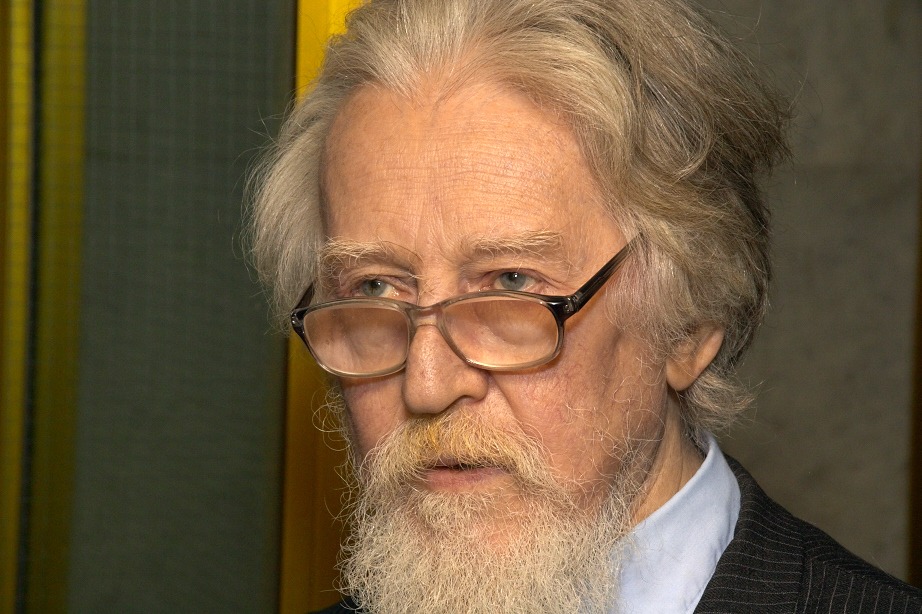|
We regret to report the recent passing away, in in the town of Tarusa (near Moscow), of Vladimir Antonovich Dybo (April 30, 1931 - May 7, 2023), an outstanding Soviet and Russian linguistic scholar, one of the foremost experts in comparative Slavic, Indo-European, and Nostratic linguistics, as well as a leading specialist in comparative-historical accentology and the historical typology of accentuation systems in the world's languages. V. A. Dybo is generally considered to be one of the founders of the Moscow school of historical linguistics and the Moscow school of historical accentology.
Vladimir Antonovich was born in the Sumy Oblast of Ukraine, but received his university education in Russia, eventually becoming a doctoral student of Vyacheslav Vsevolodovich Ivanov at the Moscow State University. In 1958 he became a researcher at the Institute of Slavic Studies of the USSR Academy of Sciences, where he would hold a position until the end of his life. In 1962, Vladimir Dybo successfully defended his candidate of sciences thesis, entitled "The issue of correlation between two Balto-Slavic series of accent correspondences in the verbal system". However, it was also in the 1960s that Dybo signed several open letters on human rights authored by Soviet dissidents - a brave action that effectively hindered him from being able to teach at universities, travel abroad to scientific conferences and defend his doctoral dissertation, entitled "An attempt at reconstructing the system of Proto-Slavic accent paradigms" and eventually defended only in 1979. In addition to Balto-Slavic languages, Vladimir Antonovich applied his experience in comparative historical accentology to the data of Italic, Celtic, Indo-Iranian, and Germanic languages of the Indo-European family; for typological reasons, he also studied the issues of accentology in Abkhaz-Adyghe languages of the Caucasus and Teda-Kanuri languages in Africa. All of this research led Vladimir Antonovich to develop a general historical typology of accent systems, in which he formulated the principle of dividing morphemes in languages with paradigmatic accent systems into two classes - "dominant" and "recessive". V. A. Dybo's works, as defined by his contemporary, the equally illustrious Russian scholar Andrei A. Zaliznyak, reflect "an absolutely uncompromising scrupulousness in relation to facts and a willingness to expend any efforts that may be necessary to obtain 100% complete information on them - but also the ability to perceive within the chaos of small particular details a harmonious global whole, to which, in the end, all the specific patterns on the lower levels are subordinated". Another subject of research, to which Vladimir Antonovich has devoted a lot of his time, is the issue of demonstrating and describing distant genetic relationship of various language families, most importantly, of the so-called "Nostratic" macrofamily, serious research on which had been conducted by Dybo's friend and colleague, Vladislav M. Illich-Svitych. After Illich-Svitych's untimely death at an early age, it was largely due to the efforts of V. A. Dybo (and his own disciples) that the comparative materials and papers of Illich-Svitych were able to see the light of day, despite all the difficulties of publishing them in the confined atmosphere of Soviet academia. Vladimir Antonovich also helped organize a special "Nostratic Seminar", bearing the name of V. M. Illich-Svitych, which has for many years remained an important platform where researchers share their experience on issues of distant language relationship (and other pertinent matters). | 
Photo: Alexei S. Kassian |
Alexei Kassian (Russian Presidential Academy of National Economy and Public Administration, School for Advanced Studies in Humanities);
George Starostin (Institute for Oriental and Classical Studies, National Research University Higher School of Economics, Moscow, Russia)
31.5.2023